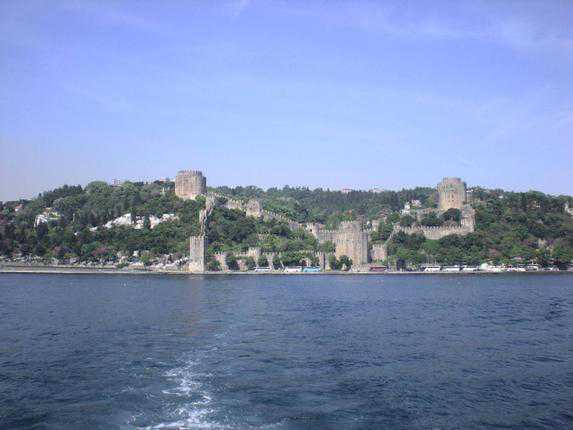My study window used to provide a view of the steps outside our house, which meant that I could see through the net curtain anyone trying to ring the bell. This was particularly bad news for a little girl with a mischievous streak who thought it great fun to creep up the stairs, ring the bell and then run away.
One day my own mischievous streak got the better of me and I waited by the door and opened it just as she tried to play her prank. I almost felt sorry for her as she stood there, finger still in mid-air, caught red handed her mouth gulping like a gold fish as she gasped for something to say. But sympathy turned to admiration as she collected her wits and used that finger to point to what I can only assume was an imaginary friend. “O yaptı,” she said in a matter-of-fact tone. “He did it.” She walked back calmly down the steps, leaving her invisible accomplice to face the music.
Since then I have noted various instances when even quite senior public figures have used the “He did it” reflex to get themselves off the hook. And it is a reflex which some of my colleagues appear all too eager to adopt to explain away, perhaps not so much their faults as a sense of cognitive dissonance and the uncomfortable sense that what they are seeing is not what they assumed was the case. It is, of course, the drip, drip, drip of WikiLeaks which has caused all the problems. For reasons I myself do not entirely understand, WikiLeaks has caused a major sense of humor failure in Turkey. You might think that the press and politicians might unloosen their ties, put up their feet and enjoy the amusement of seeing American diplomats caught with their trousers somewhere near their ankles. Instead it is Turkey which is feeling the pain. One of the leaked telegrams describes the Turkish prime minister is thinned skin — and true to that description, he has threatened to sue goodness knows who for defamation and is demanding the resignation of ambassadors long since retired. None of this is going to happen. If it is revenge he wants, he will find himself joining a very long queue.
Which is why one particular opinion that seems to have gained some currency in Turkey sounds so bizarre. It was published as an assertion in this newspaper that, “The main target [of WikiLeaks] is Turkey and its ruling Justice and Development Party [AK Party].” This is solipsism and paranoia tipping over the edge. It implies that those doing the leaking are controlled by a very narrow, Turkey-centric political agenda. Ask The New York Times or Julian Assange the key question, “Cui bono?”(Who benefits?) from the disclosure of so much confidential information, and the answer is citizens throughout the world who have a right to know what their public servants really think. Whether this answer is correct is open to debate. Some would argue that it is one thing to expose government misdeeds or the abuse of power and another to undermine a nation’s ability to deal with other nations. Is WikiLeaks satisfying our right to know or our innate love of gossip?
But ask the Turkish government spokesman Cemil Çiçek “cui bono” and he insinuates the answer is Israel — a nation determined to throw a spanner in the wheel of Turkish foreign policy. It is an answer that is either foolish or patently dishonest. Others suggest the culprit is Ergenekon, arising like Freddy Krueger from the grave.
Yet when all is said and done, WikiLeaks has not so much damaged Turkey’s reputation as informed a Turkish public that reputations are not as shiny as they are sometimes led to believe. This too will lead to productive discussion. Is Turkish policy towards Iran correct and nuanced or is it as some in the State Department believe, blinkered and naïve? It is an argument worth having. It does no one any good, however, to react to criticism by saying “he did it” or treating Ergenekon as a mischievous imaginary friend.
